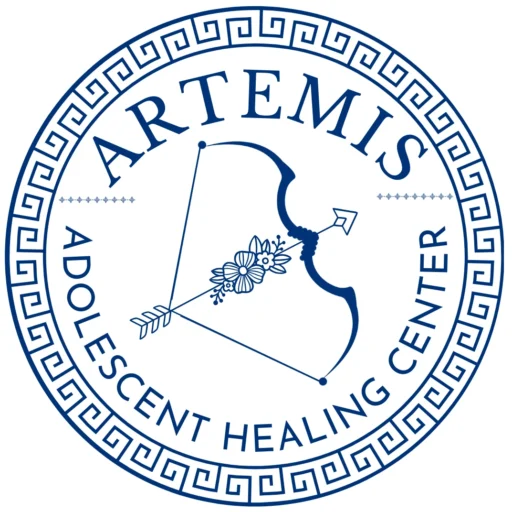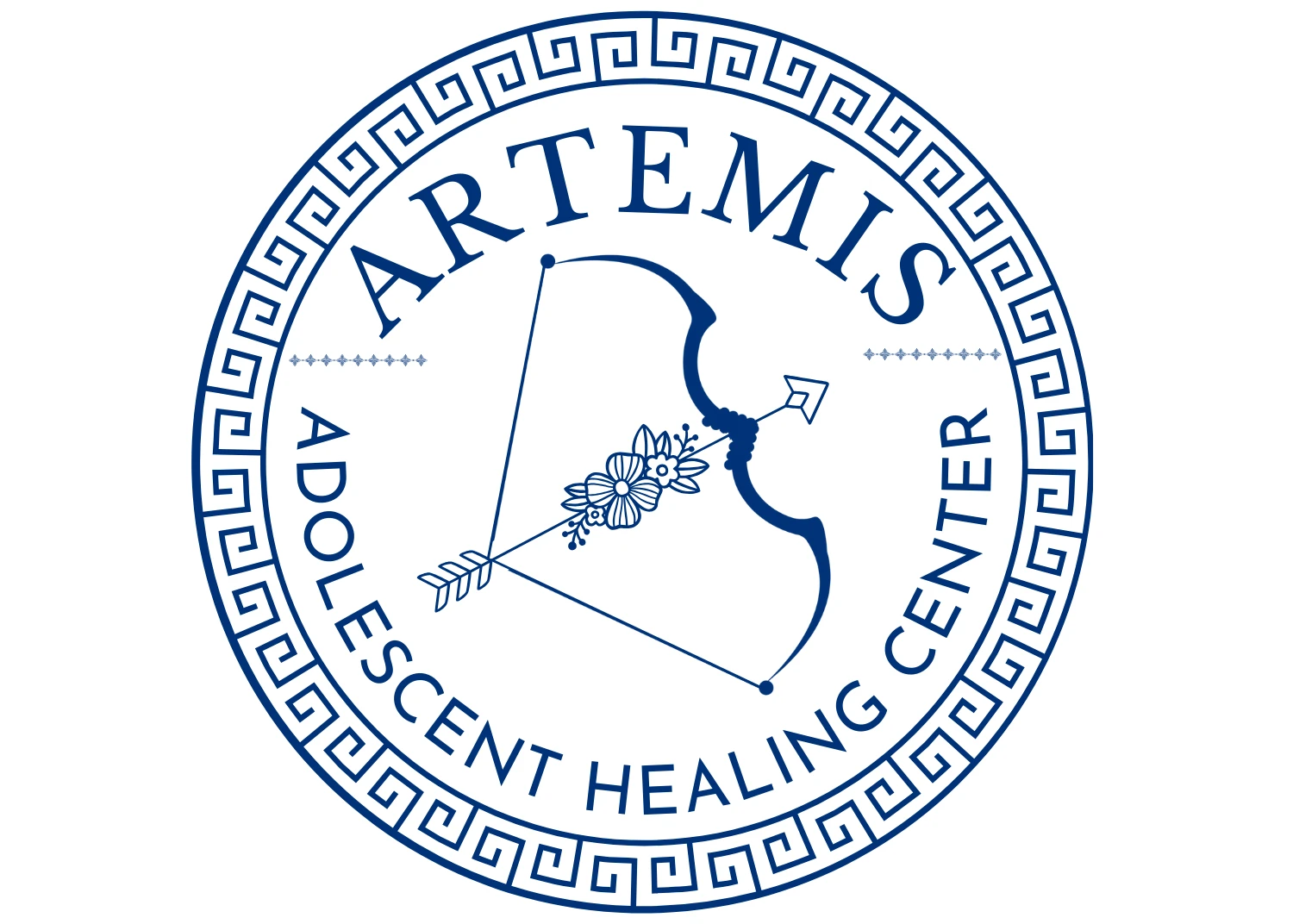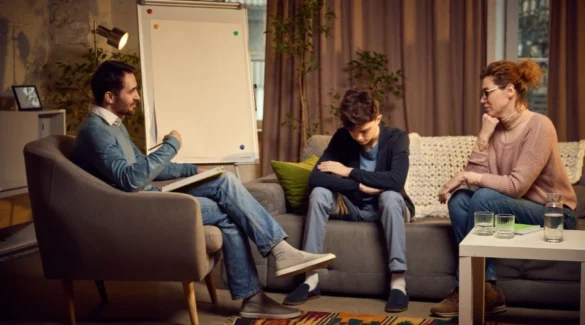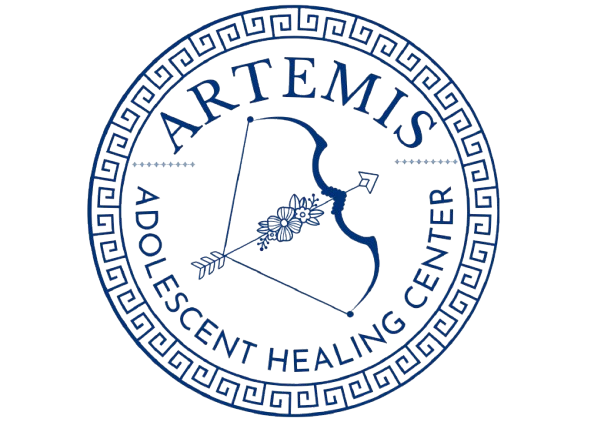Find Evidence Based Programs for Teens & Adolescents at Artemis
If you’re dealing with a teenager who wrestles with the challenges of substance abuse, this issue not only affects your child but also has a big impact on your immediate family.
Suffice to say: finding the right teen substance abuse treatment programs is critical, as time alone will not heal issues with substances.
The middle and high school years are challenging for most adolescents and teenagers, though many young adults work through this time with the proper support and coping mechanisms. However, when combined with the wrong influences, peer pressure, and mental health concerns, teenagers can quickly spiral out of control in terms of substance abuse.
The best way to address struggling teenagers wrestling with drug abuse and mental health issues is with early intervention. Otherwise, what starts with sporadic use can quickly turn into a long-term addiction, especially if the substance use fills the emotional or mental health void your child is experiencing.
At Artemis Adolescent Healing Center, we understand the challenges of substance use and troubled teens and offer a facility that delivers a compassionate staff to deploy evidence-based teen substance abuse treatment options.
If you’re facing a similar situation, this resource can help direct you toward the substance abuse and mental health care your struggling adolescent needs for long-term recovery.
Find Proven Rehab Program Options at Artemis
Recognizing Teen Substance Abuse
Identifying substance use or mental health concerns for family members with troubled teens can be difficult. Many significant determining factors can occur in young people, but certain behaviors might not stand out as they can be common problems for this age group.
That said, several behaviors stand out as more extreme than others, giving an opportunity to identify the presence of addiction. The top examples include:
- A sharp and often sudden decline in academic performance
- Unusual withdrawal from friends or family
- A shifts in sleeping patterns, with lost sleep or excess fatigue
- Unexplained weight loss or gain and dramatic appearance changes
Learning that your teenager or adolescent has an issue with substance abuse can be alarming. Parents often feel the pressure of finding the right treatment option, especially as they struggle with underlying concerns during this time.
Many wonder if they played a hand in the development of these issues, but this is not the presiding concern. The primary concern is getting help for your child. And being educated regarding the factors leading to teenage addiction can help to avoid falling into patterns of enabling that can make treatment more difficult.
Is It My Fault My Teenager Has Addiction Issues?

It’s not difficult for parents to get lost in the guilt of self-blame when they discover their child has an addiction issue. Although difficult, remaining a solid source of support and positivity is vital. This begins with educating yourself regarding the driving forces behind young people and addiction.
Early recognition is pivotal for preventing the occurrence of long-term addiction. Keep in mind your teenager could be struggling with the following:
- Academic challenges and pressures about higher education
- Confusion regarding a love-interest or sexuality in general
- Peer pressure and peer groups that are using drugs or drinking
- Challenges with bullying and harassment, online or in-person
For this reason, staying mindful of signs beyond behavioral changes is also essential while searching for the right therapeutic program. Look out for:
- Paranoid behaviors and erratic patterns of speech and activity
- The smell of alcohol, marijuana, or unusual chemical odors
- Discovery of paraphernalia such as pipes, papers, or stash kits
It is crucial not to dismiss the above actions, as even the most innocent discoveries can indicate a much larger problem. Finding the right treatment options begins with early intervention.
But why is a successful future contingent on taking action as early as possible?
Why Does Artemis Focus On Early Intervention?
The structured programs available at Artemis are rooted in early intervention.
Whenever mental health care is required at a residential treatment center for co-occurring disorders, also known as dual diagnosis treatment, taking earlier action is associated with more successful, long-term outcomes.
If you’re looking for a thriving teen residential treatment center, finding a facility that makes early intervention a priority is critical. Most development in a young person’s life occurs during the teenage years.
Delaying finding the ideal teen residential treatment program can lead to more severe addiction, enhanced health complications, and a more complex strain on family relationships.
In addition, finding the right teen residential treatment program can help address your young adult’s immediate needs and underlying mental health challenges. The goal during the first stage at an outpatient or residential treatment center is to create a personalized treatment program that caters to your teen’s specific needs.
The Ideal Treatment Program: Looking at Levels of Care
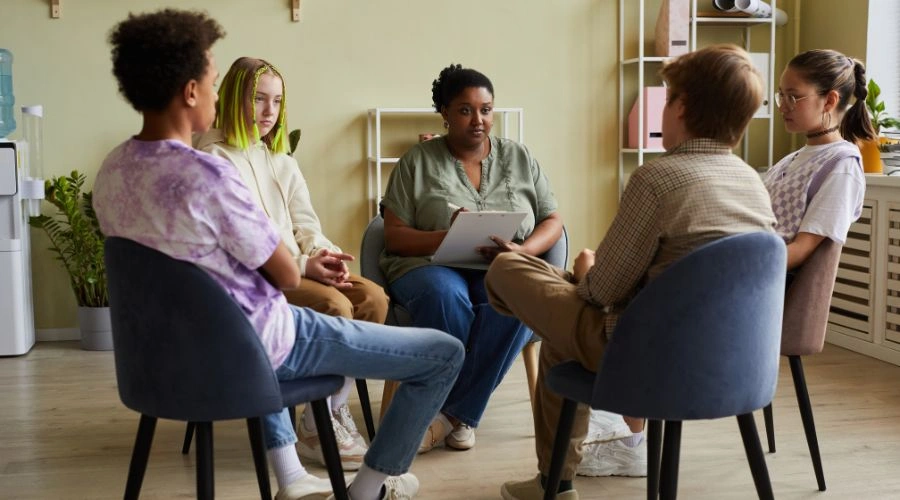
Artemis has several care-level options, allowing your teen to benefit from our evidence-based therapies. Just as a reminder, we accept most leading health insurance plans, all of which provide some form of coverage for the following levels of care:
- Inpatient treatment
- Outpatient treatment
- Intensive Outpatient
- Partial hospitalization
If you have questions about your insurance plan and coverage options, don’t hesitate to contact a member of our admissions team today. By law, your insurance agent must provide some coverage for mental health and substance use treatment.
However, the amount is based on your specific plan. We can also help you navigate this process, making enrollment stress-free.
All forms of our evidence-based treatment programs, including dialectical behavior therapy, are available within any of the care levels mentioned above. Let’s dive a little deeper into the specific forms of treatment and how they can help your teenager overcome their mental health and substance use issues.
Note that the substances we provide treatment for include, but are not limited to, the following:
- Alcohol
- Benzodiazepines (such as Xanax, valium, Klonopin, etc)
- Cocaine and crack cocaine
- Inhalants (such as nitrous oxide, glue, etc)
- Ketamine
- Kratom
- Marijuana
- Methamphetamine
- Opioids (such as fentanyl, heroin, etc)
- Prescription pills and prescription drugs
- and many others as well
Specific Evidence-Based Strategies Available
At Artemis Adolescent Healing Center, we offer various mental health treatment programs for adolescents in the Southern Arizona area. Discovering the best form of personalized treatment for you requires an assessment designed for adolescents regarding drug and alcohol abuse.
First, having the right amount of background knowledge regarding evidence-based substance use and mental health treatment can help families who need education and support during recovery.
Get Confidential Trauma and PTSD Assessment
Defining Evidence-Based Teen Substance Abuse Treatment
What is evidence-based treatment? The answer to this question is simple, as the term can be considered self-defining. Evidence-based treatment programs consist of therapeutic methods that have been rigorously tested, providing a large amount of scientific proof and data to substantiate their effectiveness.
Generally, evidence-based treatment provides and consists of:
- A clear vision or goal after the conclusion of the treatment process
- A method that offers scientific-backed research and evidence to back any claims regarding treatment outcomes
- It targets a specific area of concern during mental health or substance use treatment
- Provides the ongoing monitoring of clients with adjustments made as needed
That said, consider the following mental health treatment program options to get an accurate idea of what we offer your teen and what form of therapy might work best for them.
Cognitive Therapy

Cognitive therapy, also known as cognitive restructuring, is sometimes combined with behavioral therapy, an additional evidence-based treatment, to create the popular Cognitive Behavioral Therapy.
Essentially, cognitive therapy creates the building blocks of CBT, which focuses on replacing negative feelings and emotions associated with addiction and replacing them with healthier, more beneficial responses to these emotions. This form of evidence-based treatment is rooted in rebuilding the way your teenager associates specific feelings with substance abuse.
For example, when your teenager experiences feelings of depression, they are likely triggered to use, especially in diagnosed cases of major depressive disorder. Cognitive therapy teaches your teenager that when they experience these feelings of depression, it doesn’t mean they have to associate them with substance abuse.
Ultimately, they are substituting the way they respond to their underlying mental health condition’s primary side effects.
Behavior Therapy
By definition, behavior therapy “eliminates and changes maladaptive patterns of behavior.” Most forms of behavior therapy use rewards-based systems as their primary treatment.
Many facilities use token systems, which provide clients with certain rewards for displaying the appropriate type of behavior. Ideal examples include cases of CBT. The client learns to replace negative responses with more positive, productive ones.
Each time clients exhibit the desired, more positive response, they are rewarded with whatever item or prize is associated with their specific treatment program.
Family Therapy
For many teens, family therapy forms a significant part of their treatment program, as this is often a core support system.
Having willing, healthy family members play a prominent role in the treatment and support process can be a powerful tool.
At its root, family therapy aims to improve communication, provide mindful solutions to conflicts, and deliver support equally from all parties involved.
Equal participation is critical from during family therapy, and it’s essential to be aware that sessions don’t include placing the blame on anyone involved. Instead, more productive methods are used, such as:
- The creation of genograms. This includes mapping family members’ relationships to identify potential areas for resolving challenges. This can also help to identify unhealthy family roles and break down the reasons why they exist in the first place.
- Talk therapy can be a powerful tool for making strides during treatment. Sometimes, simple, mediated discussions can significantly improve communication methods and eliminate unresolved challenges.
- The miracle question. The miracle question involves asking participating family members what the world would look like with all issues solved. This doesn’t have to include solely issues of substance abuse but challenges or problems your teenager might be holding onto regarding other family members, allowing them an opportunity to voice their feelings during the process.
Psychotherapy

A seemingly endless number of psychotherapy options exist for parents who have a child suffering from substance abuse. Psychotherapy practices are further broken down into more targeted forms of treatment, including:
- Schema therapy is a particularly effective form of treatment for teenagers. It allows for high-quality psychological awareness in early life, which can lead to steps towards a happier outcome and long-term recovery. Popular forms of schema therapy include guided imagery and chair dialogues.
- Mindfulness-based cognitive therapy (MBCT) encourages your teenager to analyze different life practices to achieve a more calm mental state. Such practices include breathwork, urge surfing, sitting meditation, and body scans.
Artemis Adolescent Healing Center can teach parents to become supportive of healthy change by using a combination of these practices, among others.
Up To 100% of Rehab Costs Covered By Insurance
Contact Artemis for Evidence-Based Treatment In Arizona
If you and your child live in and around the AZ area—or if you’re out-of-state and willing to travel to find top-notch treatment, Artemis Adolescent Healing Center can provide the solutions to what you’re looking for.
To get started and lead your child on a journey toward long-term recovery, contact a member of our admissions team today.
